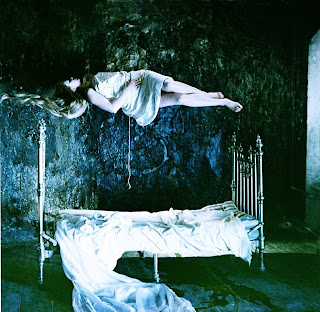 |
| Solaris (Directed by Andrei Tarkovsky) |
- Kurosawa on Tarkovsky
Akira Kurosawa first met Andrei Tarkovsky in Moscow on his first visit to Russia in July 1971 when Kurosawa attended the Moscow Film Festival. Dodeskaden was screened and won the Special Prize. Tarkovsky then went to Japan to re-pay the visit that same fall and the two directors remained friends until Tarkovsky’s untimely death in 1986. Tarkovsky told Kurosawa that he always viewed Seven Samurai before shooting a new film. Kurosawa replied that he would always see Tarkovsky’s Andrei Rublev before shooting...
Originally written by Akira Kurosawa and published in May 1977 the following article titled ‘Tarkovsky and Solaris’ recalls the early relationship between the two great directors. It was translated for Nostalghia.com by Sato Kimitoshi and was subsequently adapted by Criterion for use in the insert booklet of their Solaris DVD.
I met Tarkovsky for the first time when I attended my welcome luncheon at Mosfilm during my first visit to Soviet Russia. He was small, thin, looked a little frail, and at the same time exceptionally intelligent, and unusually shrewd and sensitive. I thought he somehow resembled Toru Takemitsu, but I don’t know why. Then he excused himself saying, ‘I still have work to do,’ and disappeared, and after a while I heard such a big explosion as to make all the glass windows of the dining hall tremble hard. Seeing me taken aback, the boss of Mosfilm said with a meaningful smile: ‘You know another World War hasn’t broken out. Tarkovsky just launched a rocket. This work with Tarkovsky, however, has proved a Great War for me.’ That was the way I knew Tarkovsky was shooting Solaris.
After the luncheon party, I visited his set for Solaris. There it was. I saw a burnt down rocket at the corner of the space station set. I am sorry I forgot to ask him as to how he had shot the launching of the rocket on the set. The set of the satellite base was beautifully made at a huge cost, for it was all made up of thick duralumin.
Tarkovsky guided me around the set, explaining to me as cheerfully as a young boy who is given a golden opportunity to show someone his favorite toybox. [The director] Bondarchuk, who came with me, asked him about the cost of the set, and left his eyes wide open when Tarkovsky answered it. The cost was so huge: about six hundred million yen as to make Bondarchuk, who directed that grand spectacle of a movie War and Peace, gaze in wonder.
Now I came to fully realize why the boss of the Mosfilm said it was ‘a Great War for me.’ But it takes a huge talent and effort to spend such a huge cost. Thinking ‘this is a tremendous task’ I closely gazed at his back when he was leading me around the set in enthusiasm.
Concerning Solaris I find many people complaining that it is too long, but I do not think so. They especially find too lengthy the description of nature in the introductory scenes, but these layers of memory of farewell to this earthly nature submerge themselves deep below the bottom of the story after the main character has been sent in a rocket into the satellite station base in the universe, and they almost torture the soul of the viewer like a kind of irresistible nostalgia toward mother earth and nature, which resembles homesickness. Without the presence of beautiful nature sequences on earth as a long introduction, you could not make the audience directly conceive the sense of having no-way-out harboured by the people ‘jailed’ inside the satellite base.
I saw this film late at night in a preview room in Moscow for the first time, and soon I felt my heart aching in agony with a longing to returning to the earth as quickly as possible. We have enjoyed marvellous progress in science, but where will it lead humanity after all? This film succeeds in conjuring up sheer fearful emotion in our soul. Without it, a science-fiction movie would be nothing more than a petty fancy.
These thoughts came and went while I was gazing at the screen.
For I was at that moment very happy to find myself living on Earth.
Solaris makes a viewer feel this, and even this single fact shows us that Solaris is no ordinary science-fiction film. It truly somehow provokes pure horror in our soul. And it is under the total grip of the deep insights of Tarkovsky.
 |
| Mirror (Directed by Andrei Tarkovsky) |
A strange train of fragments of early memory images shattered and broken can bring about the poetry in our infancy. Once you are convinced of its truthfulness, you may find Mirror the easiest film to understand. But Tarkovsky remains silent, without saying things like that at all. His very attitude makes me believe that he has wonderful potential in his future.
There can be no bright future for those who are ready to explain everything about their own film.
– ‘Akira Kurosawa: Tarkovsky and Solaris’




No comments:
Post a Comment